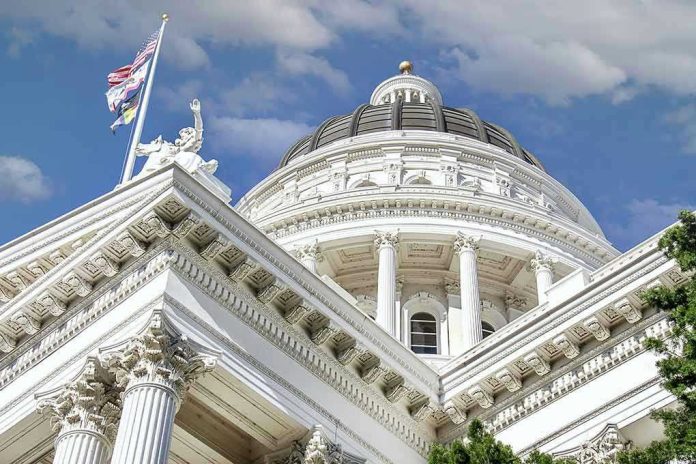
One prosecutor’s signature on a stack of subpoenas could force America to reckon with how far political power might reach when it’s wielded as a weapon against perceived enemies.
Story Snapshot
- Trump-appointed U.S. Attorney Jason Reding Quiñones has issued more than two dozen subpoenas targeting former intelligence and law enforcement officials involved in the 2016 Russia investigation.
- The investigation, based on unsubstantiated “grand conspiracy” claims, revives a narrative that previous federal inquiries found unsupported by evidence.
- Internal dissent is evident, as two top prosecutors resigned over the case’s direction, underscoring fears about politicized justice.
- This escalation could set a precedent for the use of federal power against political opponents, with profound implications for American democracy and institutional independence.
Trump’s Grievance Machine Turns Federal
Jason Reding Quiñones, a Trump-picked U.S. Attorney in Florida, recently fired off more than two dozen subpoenas at former intelligence and law enforcement officials who, years ago, probed Russian interference in the 2016 election. The targets read like a roll call of Trump’s political antagonists: former CIA Director John Brennan, ex-FBI counterintelligence agent Peter Strzok, former FBI lawyer Lisa Page, and former Director of National Intelligence James Clapper. The investigation hinges on a “grand conspiracy” theory, long championed by far-right influencers, that Democrats and “deep-state” actors coordinated an effort to undermine Trump. Despite its persistence in certain circles, this theory has repeatedly failed to stand up to scrutiny by previous Justice Department and special counsel probes, which found no criminal conduct by the officials now under scrutiny.
Quiñones’s subpoenas, issued in early November 2025, followed the transfer of the case from U.S. Attorney David Metcalf, who didn’t advance it, to someone apparently more willing to push forward. The Southern District of Florida’s grand jury will officially open its proceedings on January 12, 2026, but the fallout is already visible: two senior prosecutors resigned in protest over the case’s trajectory. Their departures signal that even within the Justice Department, alarm is growing over what some see as the weaponization of prosecutorial authority.
A New Kind of Political Warfare
Prosecutorial power, once assumed to be insulated from politics, now appears to be a tool for settling political scores. The investigation’s roots stretch back to Trump’s repeated attacks on the original Russia probe—a probe he called a “hoax” and “witch hunt.” The narrative gained new life in 2025 when Trump’s intelligence heads referred Brennan and others for investigation. Yet the alleged conspiracy has been exhaustively examined before: Special Counsel John Durham and DOJ Inspector General Michael Horowitz both found no evidence to prosecute the officials now being targeted.
In a dramatic departure from precedent, the Trump administration has installed loyalists in key legal positions. Lindsey Halligan, a Trump appointee with no prosecutorial experience, was put in charge of the Eastern District of Virginia and quickly indicted James Comey, Trump’s longtime nemesis. Such appointments raise concerns that legal experience is taking a back seat to political loyalty. Career prosecutors’ resignations, especially in Florida, are more than personnel changes—they’re warnings that the structure of American justice is straining under the weight of political pressure.
What’s at Stake: Institutional Independence and the Rule of Law
The implications of this investigation reach far beyond the named officials. If the federal government can pursue criminal charges against prior investigators based on theories already rejected by career prosecutors and previous probes, the independence of the Justice Department and intelligence community is at risk. The message to current and future officials is chilling: doing your job—if it crosses the wrong president—could mean facing a grand jury yourself. The resignations from the Southern District of Florida are a clear sign that some inside the system see the danger, but the machinery grinds on, with at least 30 subpoenas now approved by the DOJ.
This escalation comes with real costs. Legal fees for targeted officials spiral, resources are diverted from other federal priorities, and the public’s faith in impartial justice erodes further. Meanwhile, Trump loyalists, emboldened by these moves, openly declare “justice is coming,” turning every new subpoena into a rallying cry for political retribution. The grand jury’s scope continues to widen, now covering a broad window of events from July 2016 through February 2017—a period that encompasses the heart of the Russia interference probe and its aftermath.
Precedent, Power, and the Future of American Justice
While previous attempts to prove a “grand conspiracy” fizzled, this new investigation is more aggressive, with prosecutors seemingly undeterred by a lack of new evidence. The transfer from Metcalf to Quiñones—explicitly because the former would not advance the case—shows that prosecutorial discretion is, in this climate, subordinate to presidential will. The appointment of unqualified but loyal attorneys, the internal resistance by career prosecutors, and the broadening of the investigation’s scope all point to a system being bent to serve political ends.
What happens next will set the tone for how federal power can be used—or abused—in the years to come. If partisan investigations become the new norm, the risks to American democracy are acute: chilling effects on future law enforcement, a judiciary strained by political litmus tests, and a Justice Department whose independence is no longer a guarantee. For anyone who thought the Russia probe was settled, these subpoenas are a warning that, in politics, old wars never die—they’re just fought with new weapons and new rules.









